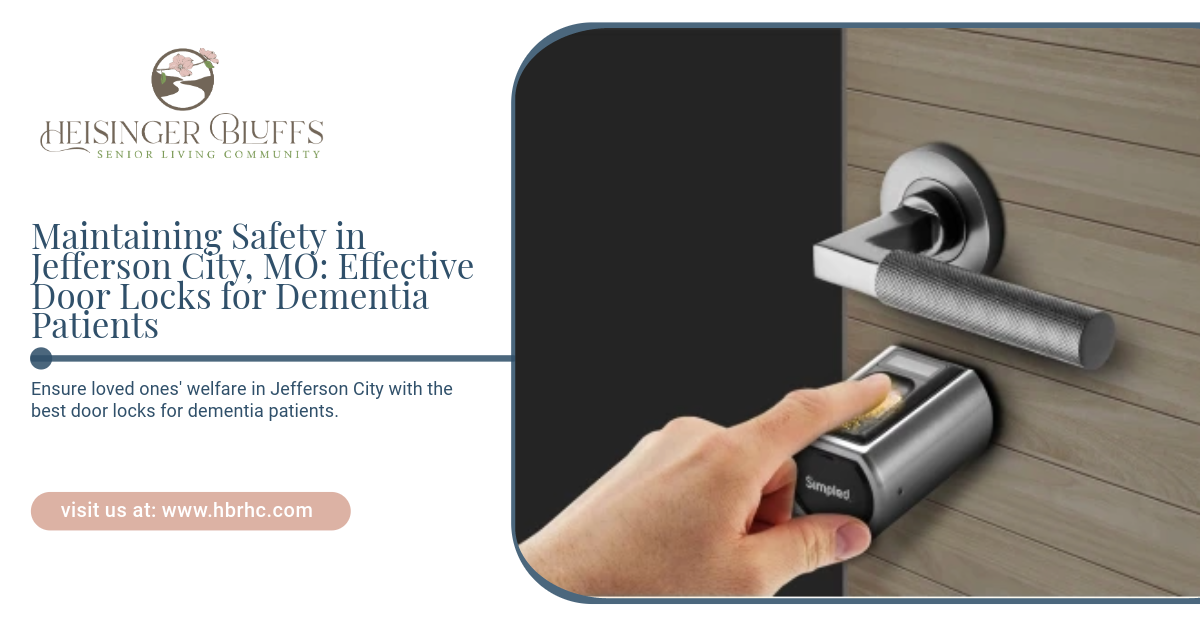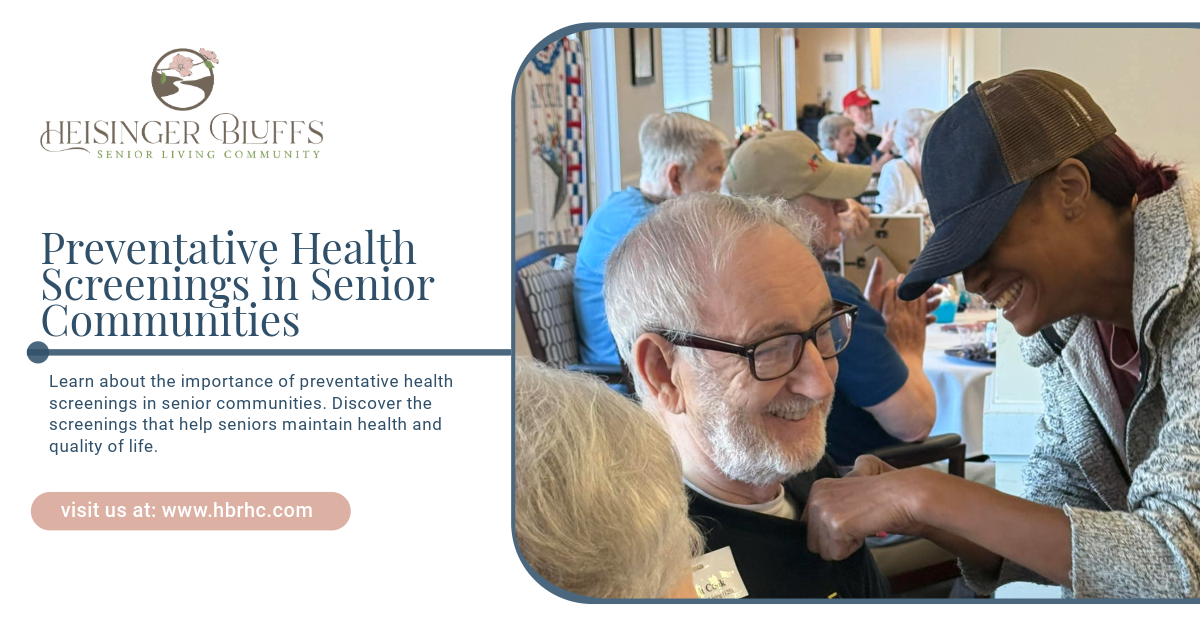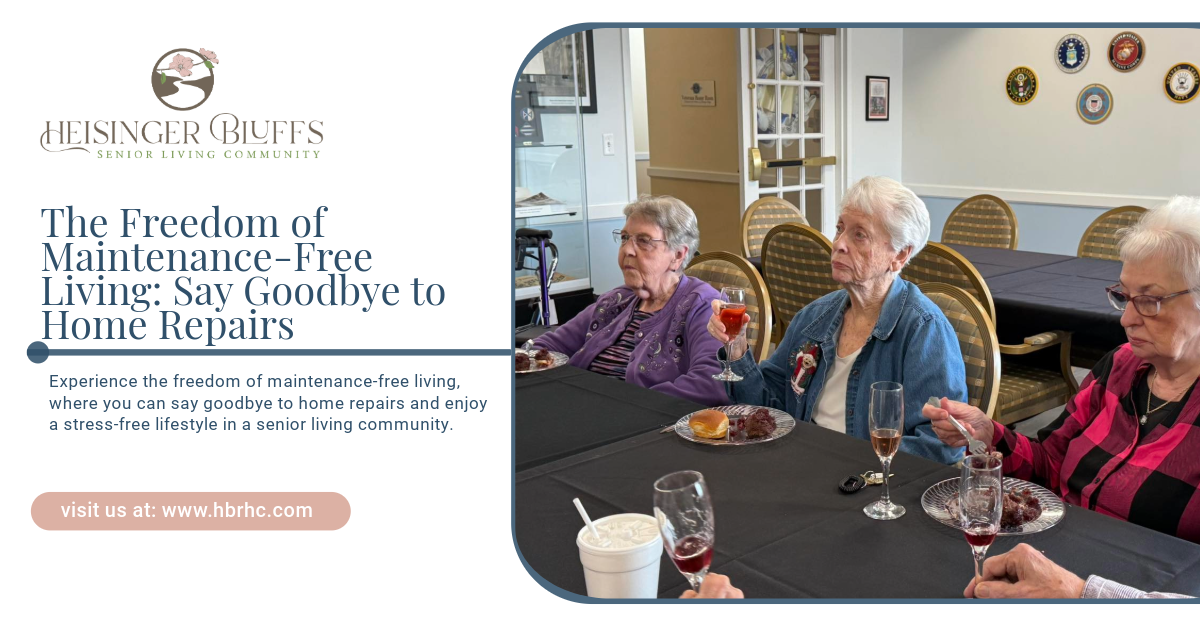Maintaining Safety in Jefferson City, MO: Effective Door Locks for Dementia Patients

Caring for a loved one with dementia requires constant vigilance, especially when it comes to their safety at home. As dementia progresses, patients may experience confusion, memory loss, and a tendency to wander, which can put them at serious risk if they exit the home unsupervised. One of the most effective ways to prevent wandering and ensure safety is by installing specialized door locks designed for dementia patients.
Choosing the right door locks can be challenging, as they need to balance security with ease of use for caregivers. In this blog, we'll explore various types of door locks suited for dementia patients, how to select the right one for your needs, and tips for maintaining home safety in Jefferson City, MO.
Understanding the Importance of Door Locks for Dementia Patients
Dementia affects cognitive functions like memory, reasoning, and judgment, often leading to behaviors such as wandering. Individuals may leave their homes, not realizing they’re entering a potentially dangerous situation. Wandering can be especially hazardous if the patient steps outside unsupervised or into areas like the garage or basement.
Door locks are essential for keeping dementia patients safe within the home, preventing them from accessing dangerous areas or leaving without alerting caregivers. However, it’s crucial to find a lock that strikes the right balance between security and usability, ensuring caregivers can easily enter or exit when needed.
Why Are Standard Door Locks Insufficient?
Standard door locks, such as deadbolts and knobs, may not be enough to prevent wandering in dementia patients. Some individuals with dementia retain the ability to unlock traditional locks, and the cognitive decline associated with the condition can make them more likely to leave doors unsecured.
Specialized door locks for dementia patients offer added layers of security, such as:
- Hidden locks that are placed out of the patient’s line of sight.
- Keypad locks that require a code for entry or exit.
- Smart locks that provide caregivers with real-time alerts and remote access.
Types of Door Locks for Dementia Patients
Choosing the right door lock for a dementia patient depends on several factors, including the severity of their condition, their living environment, and caregiver preferences. Below are some of the most effective types of door locks for ensuring safety:
1. Keypad Door Locks
Keypad locks require the user to enter a code to unlock the door, making them ideal for preventing patients with dementia from wandering outside. Caregivers can easily share the code with trusted individuals, ensuring only authorized persons can enter or exit.
Advantages:
- Secure, as dementia patients are unlikely to remember or guess the code.
- No need for physical keys, which can be misplaced.
- Some models offer automatic locking, providing additional peace of mind.
Disadvantages:
- If the keypad is visible, some patients may repeatedly attempt to guess the code, leading to frustration.
- Batteries need to be replaced regularly.
2. Smart Door Locks
Smart locks are an increasingly popular option for caregivers, allowing remote access and monitoring through a smartphone app. These locks can be set to lock or unlock automatically based on specific conditions, and some models include cameras or motion detectors to alert caregivers when someone is near the door.
Advantages:
- Remote access allows caregivers to monitor and control the lock even when they’re not at home.
- Notifications and alerts provide real-time updates if the door is unlocked or if someone tries to tamper with it.
- Integration with other smart home devices, such as cameras and sensors, for enhanced safety.
Disadvantages:
- These systems rely on Wi-Fi, which may be disrupted if there is a power outage.
- Some patients may be able to manipulate smart locks if they can access the controls.
3. Double Cylinder Deadbolts
A double-cylinder deadbolt requires a key to unlock from both sides of the door, making it a secure option for preventing wandering. This lock ensures that even if the patient unlocks the door from the inside, they won’t be able to open it without the key.
Advantages:
- Provides high security, as a key is required for entry or exit.
- Useful for doors leading to high-risk areas like basements or outdoor spaces.
Disadvantages:
- Caregivers must always have the key on hand to quickly unlock the door in case of an emergency.
- Not suitable for quick exits during a fire or other emergencies.
4. Door Alarms
While not technically a lock, door alarms can be an effective complement to any locking system. Alarms sound when the door is opened, alerting caregivers that someone may be attempting to leave. This is particularly useful at night when caregivers may not be awake to monitor the door.
Advantages:
- Alerts caregivers to any potential wandering.
- Easy to install and can be combined with other locking systems.
- Affordable and versatile, can be used on windows or gates as well.
Disadvantages:
- Alarms do not physically stop a patient from exiting, so they must be combined with a lock for full security.
- The sound may agitate some dementia patients.
5. Child-Proof Locks
Child-proof locks, such as latch locks or lever locks, can also be used for dementia patients. These locks are typically installed high on the door, out of the line of sight and reach of the patient. Latch locks can be difficult for individuals with cognitive decline to manipulate, making them a simple yet effective option for home safety.
Advantages:
- Easy to install and affordable.
- Effective at keeping doors locked without requiring keys or codes.
Disadvantages:
- Not as secure as other options like smart locks or deadbolts.
- Patients with advanced cognitive function may still be able to manipulate these locks over time.
Additional Safety Measures for Dementia Patients
While door locks play a crucial role in preventing wandering, they should be part of a broader safety strategy. Here are some additional steps you can take to improve home safety for a loved one with dementia:
1. Secure Windows
In addition to doors, ensure that windows are secured with locks or alarms to prevent climbing or opening. Some individuals with dementia may attempt to exit through a window if they cannot access the door.
2. Use Motion Sensors
Motion sensors can be installed near doors or high-risk areas to alert caregivers when someone is approaching. These sensors can activate lights, sounds, or even notifications sent directly to a smartphone.
3. Install Safety Gates
Safety gates can be used to block access to certain areas of the home, such as staircases or entryways. Gates should be sturdy and designed for adult use to prevent patients from bypassing them.
4. Consider GPS Tracking Devices
If your loved one has a tendency to wander, consider using a GPS tracking device. These devices can be worn as bracelets or placed in clothing and allow caregivers to locate the patient in real time if they leave the house.
Choosing the Right Lock for Your Loved One
When selecting the best door lock for a dementia patient, it’s important to consider the individual’s specific needs and behaviors. Some patients may respond well to keypad locks, while others may benefit from smart locks that offer remote monitoring. Caregivers should also assess the layout of the home, as well as the potential hazards in each room, to determine the most appropriate safety solutions.
Tips for Selecting the Right Lock:
- Consider the patient’s cognitive abilities and whether they can manipulate simple locks or remember key codes.
- Think about how often caregivers or family members need access to the home and whether they prefer keys, codes, or remote access.
- Evaluate the risk of emergencies like fires, and ensure that the lock allows for quick exits if necessary.
Conclusion
Ensuring the safety of individuals with dementia is a top priority for caregivers in Jefferson City, MO. Choosing the right door locks can significantly reduce the risk of wandering and provide peace of mind for families. Whether you opt for a keypad lock, smart lock, or another type of security measure, it’s important to select a system that meets the needs of both the patient and caregiver.
At Heisinger Bluffs, we understand the unique challenges of caring for individuals with dementia. Our team is dedicated to helping families create safe, secure living environments for their loved ones. If you have any questions or need guidance on additional safety solutions, don’t hesitate to contact us.
Frequently Asked Questions
Can dementia patients figure out how to open keypad locks?
While most dementia patients will find keypad locks difficult to manipulate, some may still try to guess the code or observe others entering it. To increase security, choose a lock with complex entry codes and keep the keypad out of sight when not in use.
Are smart locks reliable for dementia care?
Yes, smart locks are a great option for caregivers because they offer remote monitoring and control. However, it’s important to have a backup plan in case of power outages or Wi-Fi disruptions, which could temporarily disable the lock.
How do I choose the best door lock for my loved one with dementia?
When selecting a door lock, consider factors like the patient’s cognitive abilities, ease of use for caregivers, and the overall security needs of the home. Locks with tamper-proof mechanisms, keypad access, or remote control features are generally the best options.
Sources:
- https://pmc.ncbi.nlm.nih.gov/articles/PMC4104432/
- https://www.nia.nih.gov/health/alzheimers-changes-behavior-and-communication/coping-alzheimers-behaviors-wandering-and
- https://forum.alzheimers.org.uk/threads/front-door-locks.129884/
- https://flyinglocksmiths.com/blog/door-alarms-101-stand-alone-vs-hardwired-door-alarms/
- https://acl.gov/sites/default/files/triage/bh-brief-wanderingexit-seeking.pdf
- https://www.alzheimers.org.uk/get-support/publications-and-factsheets/dementia-together/people-affected-dementia-try-gps-safer-walking-device











